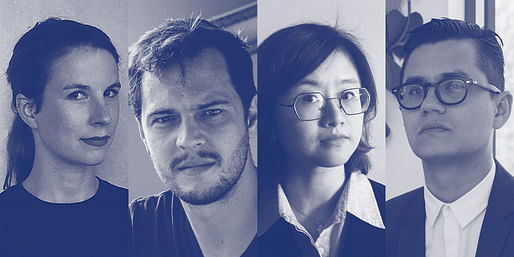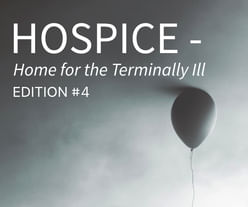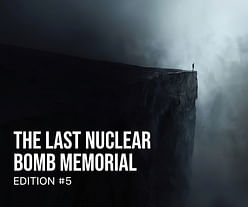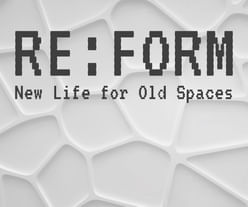

Out of 125 applications from nearly 40 countries, four finalist architects are still in the running for the 2018 Wheelwright Prize. Bestowed by the Harvard University Graduate School of Design, the $100,000 grant supports travel-based architectural research outside of the U.S. for a two-year period. The prize recognizes emerging architects who have strong potential to significantly contribute and introduce critical modes of thinking to contemporary architectural practice, as well as tackle pressing issues within the discipline and the broader design field.
The final contenders are from Belgium, Mexico, Brazil, and the United States. Each finalist presented their work and research proposal earlier this week at the GSD, and the winner is expected to be announced in April. Read more about the finalists below.
Aude-Line Duliere
Proposal: “Crafted Images: Material Flows, Techniques, and Reuses in Set Construction Design”
Duliere holds a Master of Architecture degree from Harvard GSD and studied in Brussels at the Institut Superieur d’Architecture La Cambre and at Sint-Lucas (KU Leuven). She has worked as an architect and movie production designer assistant since 2003. Her academic interests build on the dual nature of her experience and explore the relation between architecture and cinema. She co-authored Once Upon a Time… Monsterpieces of the 2000s! (ORO Editions), presented at the Architectural Association and at the Storefront for Art and Architecture. She currently teaches perspective and architectural drawing at the Ecole Nationale Supérieure des Arts Visuels of La Cambre in Brussels and she has led studios as visiting professor at the KADK in Copenhagen and the AA Summer program. She served as a design critic for The Rotthier European Prize for Architecture and for student works at CASS Architecture, KU Leuven, and the AA in London. She is a registered architect, member of the British Film Design Guild, and a board member of the Brussels-based space ‘La Loge’ dedicated to contemporary art, architecture and theory. She worked at David Chipperfield Architects between 2010 and 2015 and at Rotor in Brussels, which focuses on material flows in the construction industry and facilitates the reuse of building materials in large-scale projects through so-called “deconstruction” and design projects.
José Esparza Chong Cuy
Proposal: “Pedagogy of the Self-Governed: Autogobierno and Other Forms of Alternative Learning”
Esparza Chong Cuy is the Pamela Alper Associate Curator at the Museum of Contemporary Art Chicago, where he is currently organizing a large-scale Lina Bo Bardi retrospective in collaboration with the Museu de arte de São Paulo and the Museo Jumex in Mexico City. Previously, he was Associate Curator at the Museo Jumex, where, among other projects, he organized exhibitions with artist Pedro Reyes and architect Andrés Jaque. In 2013 he was co-curator of the Lisbon Architecture Triennial, titled Close, Closer. Between 2007 and 2012 he lived in New York and held positions at Storefront for Art and Architecture and Domus magazine. In 2010 he was a research fellow at the New Museum for Contemporary Art. Esparza Chong Cuy holds an M.S. in Critical, Curatorial, and Conceptual Practices in Architecture from Columbia University's Graduate School of Architecture, Planning and Preservation.
Gustavo Utrabo
Proposal: “From Extraction to Growth: A Concreteless Project”
Born in Curitiba, Brazil, Utrabo received a degree in Architecture and Urbanism from the Federal University of Paraná in Curitiba – Brazil in 2010. In 2014, he also completed a specialization course in National History and Literature from UTFPR. In 2012, Gustavo co-founded Aleph Zero together with architect Pedro Duschenes. The office, currently based in São Paulo, operates in diverse fields such as research, cultural, residential and commercial architecture, urban initiatives and master plans. Each project is approached as a new opportunity to explore the ambiguity of limits for the creation of affecting atmospheres. Displacement, porosity, repetition, impossibility, nature and artificiality are some of the recurring concepts used to understand the problem at hand in a collaborative process involving architects, researchers, artists and technical consultants. Recently, the office was nominated to the Mies Crown Hall Americas Prize for Emerging Architecture and to the 2018 International List of the RIBA’s international Prize. In 2018 the project Children Village received ArchDaily’s 2018 Building of the Year Award; the project will be displayed in Brazil’s National Pavilion at the 2018 Venice Biennale. Utrabo is also an assistant professor of architecture at Escola da Cidade in São Paulo – Brazil.
Catty Dan Zhang
Proposal: “60 mph: Architectural Mediums and Speed Tectonics”
Catty Dan Zhang is currently an assistant professor of architecture at UNC Charlotte, where she teaches studios and courses that propel intellectual thinking while introducing comprehensive toolkits and emerging technologies. Her work spans across buildings, installations, artifacts, projections, and robotics, and her research engages cinematics in design with evolving digital media, mechatronic vision, fabrication processes, and responsive environments, driven by the interests of human-centered perception and atmospheric dynamics. Zhang collaborates with Axi:Ome— an interdisciplinary architectural design and research practice based in St. Louis and Jecheon. As a design principal, she has led a broad range of speculative as well as commissioned projects internationally. Zhang was previously a lecturer in architecture at Washington University in St. Louis. She holds a Bachelor of Architecture degree from Tsinghua University, and a Master of Architecture with Honors from Washington University in St. Louis, where she received the Best Degree Project Award for her project Elegy. She has recently completed her Master in Design Studies (MDes) degree from Harvard GSD, where she received the Second Annual MDes Final Project Research & Development Award for her thesis FANS: Constructed Invisibles, and was the 2017 recipient of the Daniel L. Schodek Award for Technology and Sustainability.
This year’s jury includes: 2014 Wheelwright Prize Winner Jose Ahedo, Edward Eigen, Frida Escobedo, K. Michael Hays, Mark Lee, Mohsen Mostafavi, and Michelle Wilkinson.

Hospice - Home for Terminally Ill #4
Register by Wed, Jan 15, 2025
Submit by Mon, Jun 16, 2025

The Last Nuclear Bomb Memorial / Edition #5
Register by Thu, Jan 16, 2025
Submit by Wed, Feb 19, 2025

Re:Form – New Life for Old Spaces
Register by Wed, Jan 22, 2025
Submit by Tue, Sep 2, 2025

Ceramics of Italy Tile Competition
Register/Submit by Fri, Feb 14, 2025
No Comments